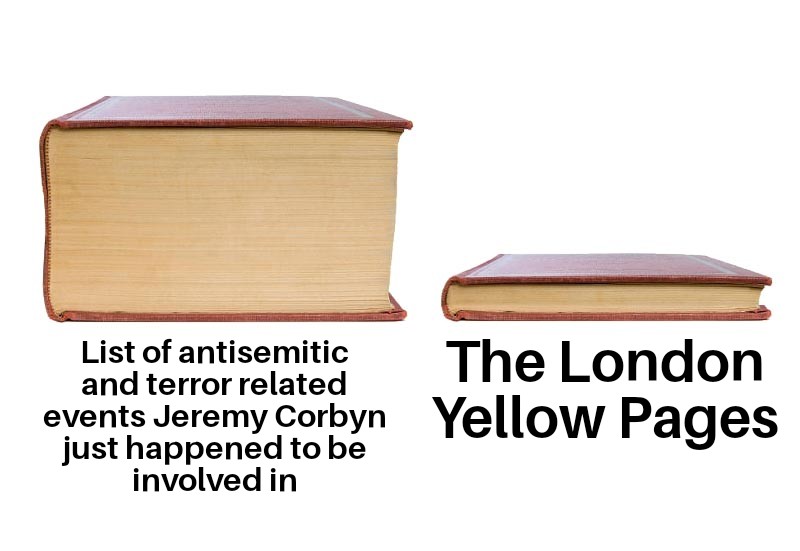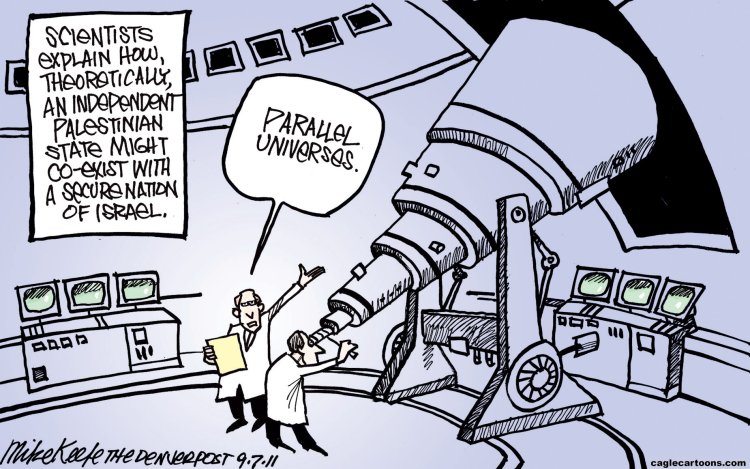Melanie Phillips: The sickening reality of Labour party Jew-hatred
It is horrifying that this party might possibly find itself governing the country after next weeks general election. It is appalling that so many people are planning to vote for it, and that its opinion poll ratings have actually gone up since the Chief Rabbi issued his dramatic warning about the threat it poses to the Jewish community. It is shameful that, in this election campaign, so-called “moderate” Labour candidates are campaigning to put this disgusting party into power.Douglas Murray: You can’t compare Tory Islamophobia with Labour anti-Semitism
But above all, this evidence leads to the inescapable conclusion that a spiritual sickness has not just spread within the Labour party but British society. A culture that produces so much derangement and moral depravity as is being directed at Israel and the Jewish people – and has been for decades, long before Corbyn became the Labour leader – is a society that has lost its moral compass.
Of course, Britain has a history of profound and enduring antisemitism. Its literature is infused with it; in the Middle Ages it burned Jews alive in pogroms and eventually threw them out of the country; in the 1930s and 40s, it was an accomplice to the Holocaust by barring European Jews from entry to Palestine, in flagrant repudiation of its treaty obligation as the Mandatory power to settle Jews in their ancient homeland. Its two periods of active philosemitism, under Oliver Cromwell in the 17th century and the heyday of evangelical Christianity in the 19th century, were exceptions to the rule. And there was a period after the Holocaust when antisemitism went underground and was regarded as utterly beyond the pale.
Epidemic Jew-hatred always signals a society in crisis. Its current eruption – which is happening not just in Britain but in America and Europe too – is sounding the alarm not just for diaspora Jews but for a western culture in freefall.
In 2017, Darren Osborne drove a truck into a crowd of worshippers leaving prayers at a mosque in Finsbury Park. And yet, to date, Boris Johnson has not campaigned that Osborne should not have been charged, found guilty or sentenced for this appalling crime. So far as I am aware, no elected member of the Conservative Party has pretended that Osborne is some poor, misguided innocent.
And yet this is the sort of act that would have to be found in the ranks of the Conservative Party in order to find an equivalence to Jeremy Corbyn’s support for Samar Alami and Jawad Botmeh — two men who were convicted for a car-bomb attack on a London Jewish charity’s headquarters in 1994. While Corbyn acted as a long-time defender and indeed character referee for the anti-Jewish bombers, no senior Conservative appears to have made Darren Osborne into some kind of sick campaigning cause.
I could go on and on. While the Shadow Chancellor has spent years defending the “bravery” of the IRA when they tortured and murdered hundreds of innocent people, there is no evidence that the present Chancellor, Sajid Javid, ever praised or gave supportive speeches for the Red Hand Defenders or Ulster Volunteer Force. Is such evidence likely to emerge? I suspect not.
So why this strange emphasis from members of the commentariat who like to pretend that they are independent-minded, that they cannot vote for either main party because they are in some way equally bad? Perhaps some of them think it. Perhaps some genuinely cannot tell any differences between the two parties.
But a far more likely explanation is that many of these ‘independent-minded’ columnists are simply far more tribal than they would like the rest of us to think. When the Labour Party is led by a man who has spent his life mainstreaming the vilest and most deadly prejudice of all, the lifelong members of the Labour tribe who recognise that fact still feel too much a part of that tribe to do the one thing that is more appalling than anything to them — which is to switch sides and vote Conservative.
That is the one thing they can never do. And so they come up with ways to reorient the political landscape; to present themselves as being the only people remaining stable while everyone else is disoriented. Whereas they — in their moment of pretended stability — may be the most lost and morally disoriented people of all.
Melanie Phillips: Islamists are not the same as other prisoners
The terrorist attack by Usman Khan on a prisoner rehabilitation conference in London was made possible by two catastrophic and tragic misjudgments.Douglas Murray: A picture of our criminal naivety: Ten years ago, DOUGLAS MURRAY was publicly confronted by Anjem Choudary. Standing adoringly next to the hate cleric was an accomplice of the London Bridge murderer. Why ARE we so lax about terror in our midst?
The first was by the Court of Appeal, which changed Khan’s sentence. At the root of their mistake lay a failure to understand fanatical Islam.
This failure also characterised the second misjudgment, by both the group that had invited Khan to its conference and the probation service which enabled him to attend: believing that he was a reformed character. This was rooted in a deeper refusal to acknowledge the unique challenges of Islamic extremism, a mistake made by most of the justice establishment.
The liberal West wants to believe every criminal is redeemable. Some are. Others are not. Islamic radicalism challenges the liberal orthodoxy that there can be no difference in treatment between groups. The nature and scale of this challenge, however, requires a unique response.
With such observations being silenced as “Islamophobic”, rational concerns for public safety have been stigmatised instead as an obnoxious mental disorder. Unless the establishment gathers its courage and its wits to face that intimidation down, Friday’s atrocity is unlikely to be the last.
With a notorious reputation for whipping up anti-British Islamist hate, you could be forgiven for thinking that Anjem Choudary is like every other frothing-at-the-mouth Jihadi extremist.
But he's not, as I learnt in 2009 when an invitation to debate him turned into a tense stand-off on a central London street in broad daylight.
As you'll see in the photo on this page, Choudary didn't scream at me. He didn't get up close into my face. In fact, he hardly raised his voice.
Instead, mimicking the manner of a highly learned imam — which he is not — he tried to give out the impression of being a perfectly reasonable fellow. He knew that the thugs around him were doing the intimidating for him.
But as the twinkle in his eye that day revealed, he knew — and I knew — that he was playing a deadly but careful game.
A game intended to keep him just on the right side of the law and stay out of prison.
What both of us knew was that in private it was another matter.
Because behind closed doors he was already proving to be one of the most adept terrorist recruiters in this country.













































.jpg)


.jpg)

